#Fiber content in cashews
Fiber content in cashews
Fiber content in cashews
1. Do cashews contain fiber? How much fiber is in cashews?
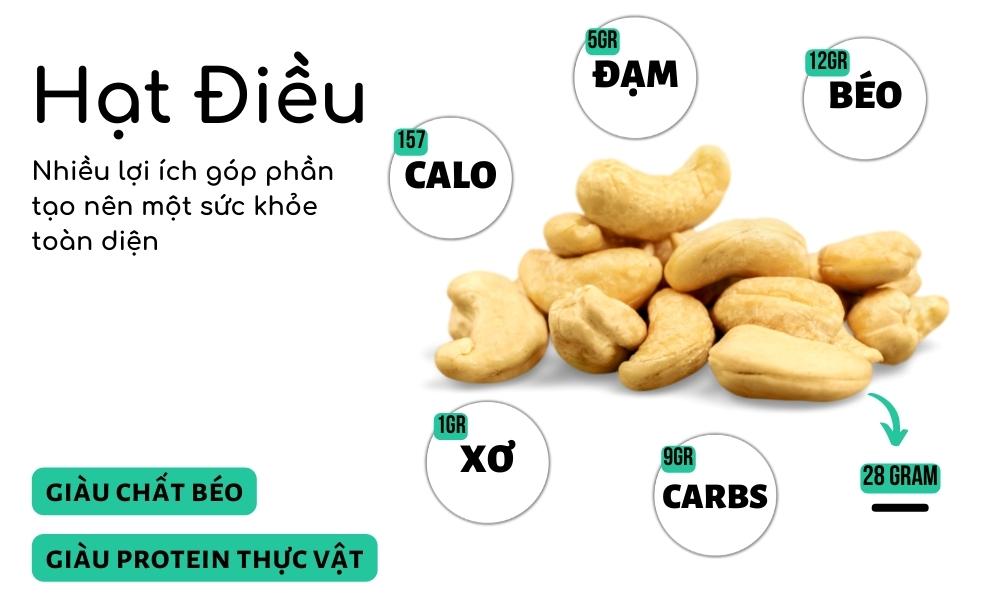
Cashews do contain fiber, although not in high amounts compared to some other nuts. Fiber is an important component for maintaining digestive and heart health. Specifically, one ounce (about 28 grams) of cashews contains around 1 gram of fiber.
Fiber is a type of carbohydrate that the human body cannot digest. There are two main types: soluble fiber and insoluble fiber. Soluble fiber dissolves in water to form a thick gel in the stomach, helping to reduce cholesterol and control blood sugar levels. Insoluble fiber does not dissolve in water, helping to increase the movement of the digestive system and prevent constipation.
In summary, although the fiber content in cashews is not high, incorporating cashews into your daily diet still provides a certain amount of fiber along with many other important nutrients.
2. What is fiber?
.jpg)
Fiber is a type of carbohydrate that the human body cannot digest. Unlike other carbohydrates, fiber is not broken down into smaller sugar molecules and is not absorbed into the bloodstream. Instead, fiber passes through your digestive system, keeping your intestines clean and healthy, reducing constipation, and helping regulate blood sugar levels.
Types of Fiber:
Soluble Fiber:
- Dissolves in Water: When dissolved, it forms a thick gel in the stomach.
- Food Sources: Oats, beans, barley, and certain fruits like apples and oranges.
- Benefits: Helps reduce levels of bad cholesterol (LDL), control blood sugar, and increase feelings of fullness.
Insoluble Fiber:
- Does Not Dissolve in Water: Helps increase the movement of the digestive system.
- Food Sources: Whole grains, wheat bran, nuts, and vegetables like carrots and cucumbers.
- Benefits: Helps prevent constipation and keeps the digestive system functioning well.
Benefits of Fiber for the Body:
Supports Digestion:
- Enhances bowel function and reduces the risk of constipation.
- Low the risk of digestive diseases such as diverticulitis and hemorrhoids.
Lowers Cholesterol:
- Soluble fiber helps absorb bad cholesterol (LDL), thus reducing overall blood cholesterol levels.
Controls Blood Sugar:

- Fiber helps regulate blood sugar levels by slowing down sugar absorption.
Promotes Satiety:
- Fiber helps create a lasting feeling of fullness, reducing hunger and aiding in weight control.
Protects Heart Health:
- Lowers the risk of cardiovascular disease by reducing cholesterol and blood pressure levels.
Reduces the Risk of Certain Chronic Diseases:
- Fiber helps reduce the risk of diseases such as type 2 diabetes, obesity, and some types of cancer.
Fiber-Rich Food Sources:

- Whole Grains: Barley, oats, quinoa.
- Fruits: Apples, oranges, pears, bananas.
- Green Vegetables: Broccoli, spinach, kale.
- Legumes and Nuts: Green beans, chia seeds, cashews.
Ensuring sufficient fiber intake in your daily diet helps maintain good health and prevent many diseases. Make sure you get enough fiber through fiber-rich foods to enjoy the benefits it brings!
3. Effects of fiber on the body
Fiber plays a crucial role in maintaining overall health. Here are the detailed benefits of fiber for the body:
- Improves Digestion: Fiber enhances digestive function by promoting the movement of food through the intestines, preventing constipation and other digestive issues. Insoluble fiber, in particular, adds bulk to the stool and helps it pass more easily.

- Reduces Cholesterol: Soluble fiber can lower levels of bad cholesterol (LDL) in the blood, thereby reducing the risk of cardiovascular diseases. It binds with cholesterol particles and helps remove them from the body.
- Controls Blood Sugar: Fiber helps slow the absorption of sugar, aiding in blood sugar control and preventing spikes in blood glucose levels. This is particularly beneficial for people with diabetes.
- Supports Weight Loss: Fiber creates a feeling of fullness, effectively helping to control weight by reducing appetite. High-fiber foods are often more filling, which can help you eat less and stay satisfied longer.

- Prevents Certain Diseases: A high-fiber diet is associated with a lower risk of developing various conditions, including heart disease, type 2 diabetes, and certain types of cancer, such as colorectal cancer.
- Maintains Gut Health: Fiber serves as food for beneficial bacteria in the gut, helping to maintain a healthy gut microbiome. This can improve overall digestive health and boost the immune system.
To ensure you get enough fiber, include a variety of fiber-rich foods in your diet, such as vegetables, fruits, whole grains, and legumes. This will help you reap the full range of benefits that fiber offers.
4. How should cashews be included in your diet to supplement the appropriate amount of fiber?
To incorporate cashews into your diet to help you meet your daily fiber needs:
Daily Serving Recommendations
Serving Size: One ounce (28 grams) of cashews, which is about 18-20 cashews, provides approximately 1 gram of fiber.
Ways to Incorporate Cashews
Snacks:
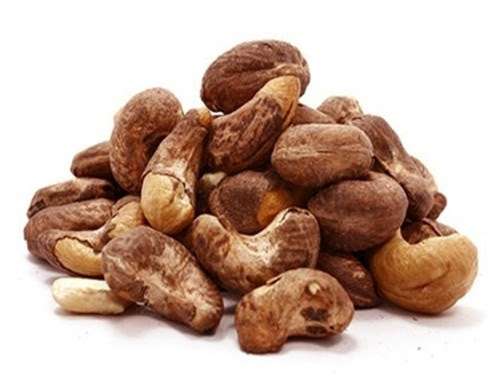
Plain or Roasted Cashews: Enjoy them as a quick snack between meals to add a bit of fiber to your diet.
Breakfast:
Smoothies: Blend cashews into your morning smoothies for a creamy texture and extra fiber.
Oatmeal or Cereal: Sprinkle chopped cashews on top of your oatmeal or cereal to enhance flavor and fiber content.
Salads:
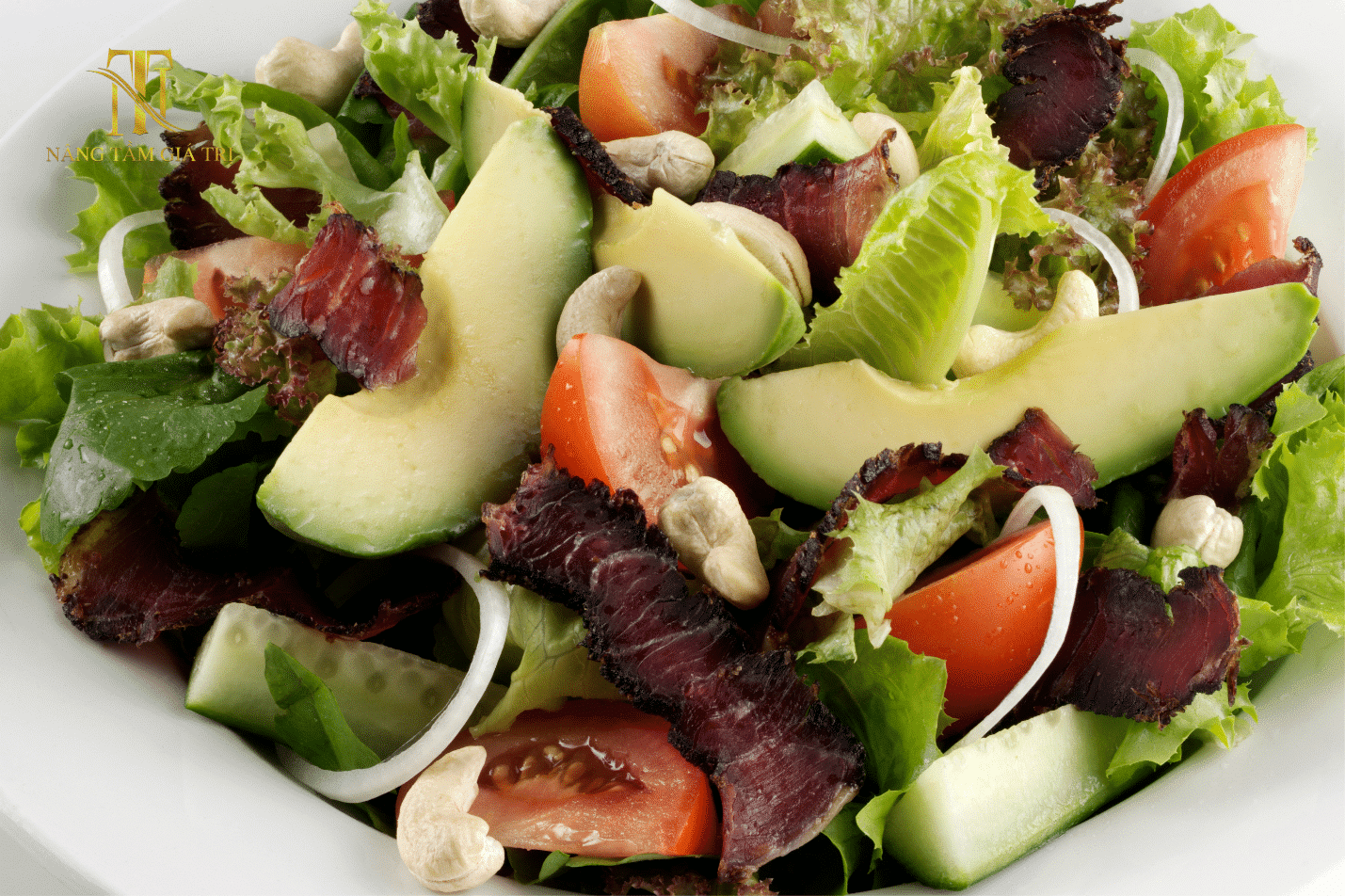
Salad Topping: Add roasted or raw cashews to your salads for a crunchy texture and fiber boost.
Main Dishes:
Stir-Fries: Include cashews in your vegetable or chicken stir-fries for added flavor and a fiber increase.
Curries: Use cashews in curries to create a rich, creamy texture while boosting fiber intake.
Desserts:

Baking: Incorporate cashews into baking recipes like cookies, cakes, or granola bars for additional fiber.
Cashew Milk: Make homemade cashew milk and use it in smoothies, coffee, or baking recipes.
Additional Tips
- Combine with Other Fiber-Rich Foods: Pair cashews with other fiber-rich foods like fruits, vegetables, whole grains, and legumes to ensure you get a balanced amount of fiber.
- Moderation is Key: While cashews are nutritious, they are also calorie-dense. Enjoy them in moderation to avoid excessive calorie intake.
- Variety in Diet: Ensure a varied diet that includes different nuts, seeds, fruits, vegetables, and grains to meet your nutritional needs.
Sample Daily Plan with Cashews
- Breakfast: Smoothie with spinach, bananas, and a handful of cashews.
- Morning Snack: A small handful of plain or roasted cashews.
- Lunch: Mixed greens salad with grilled chicken, cherry tomatoes, and a sprinkle of chopped cashews.
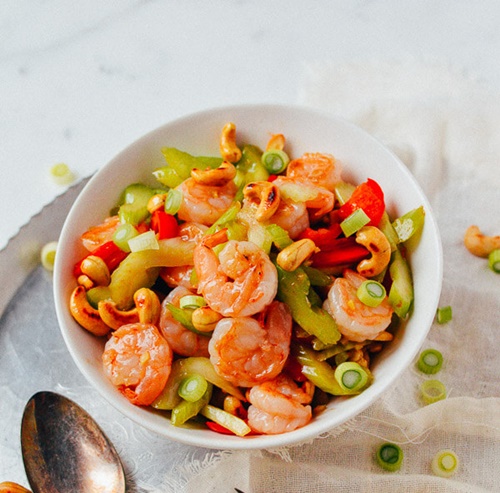
- Dinner: Stir-fried vegetables with tofu and cashews.
- Dessert: A small piece of dark chocolate with a few cashews or a slice of homemade cashew-based granola bar.
By incorporating cashews into various meals throughout the day, you can enjoy their delicious flavor while benefiting from the fiber and other nutrients they provide.
Xem thêm: Hạt điều có chứa chất xơ không? Lượng chất xơ trong hạt điều là bao nhiêu
Learn more: Do Cashews Contain Fiber? How Much Fiber Is In Cashews?

 Brian Dương
Brian Dương
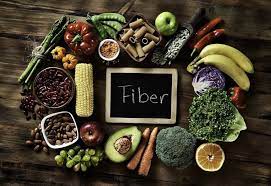
TVQuản trị viênQuản trị viên
Xin chào quý khách. Quý khách hãy để lại bình luận, chúng tôi sẽ phản hồi sớm